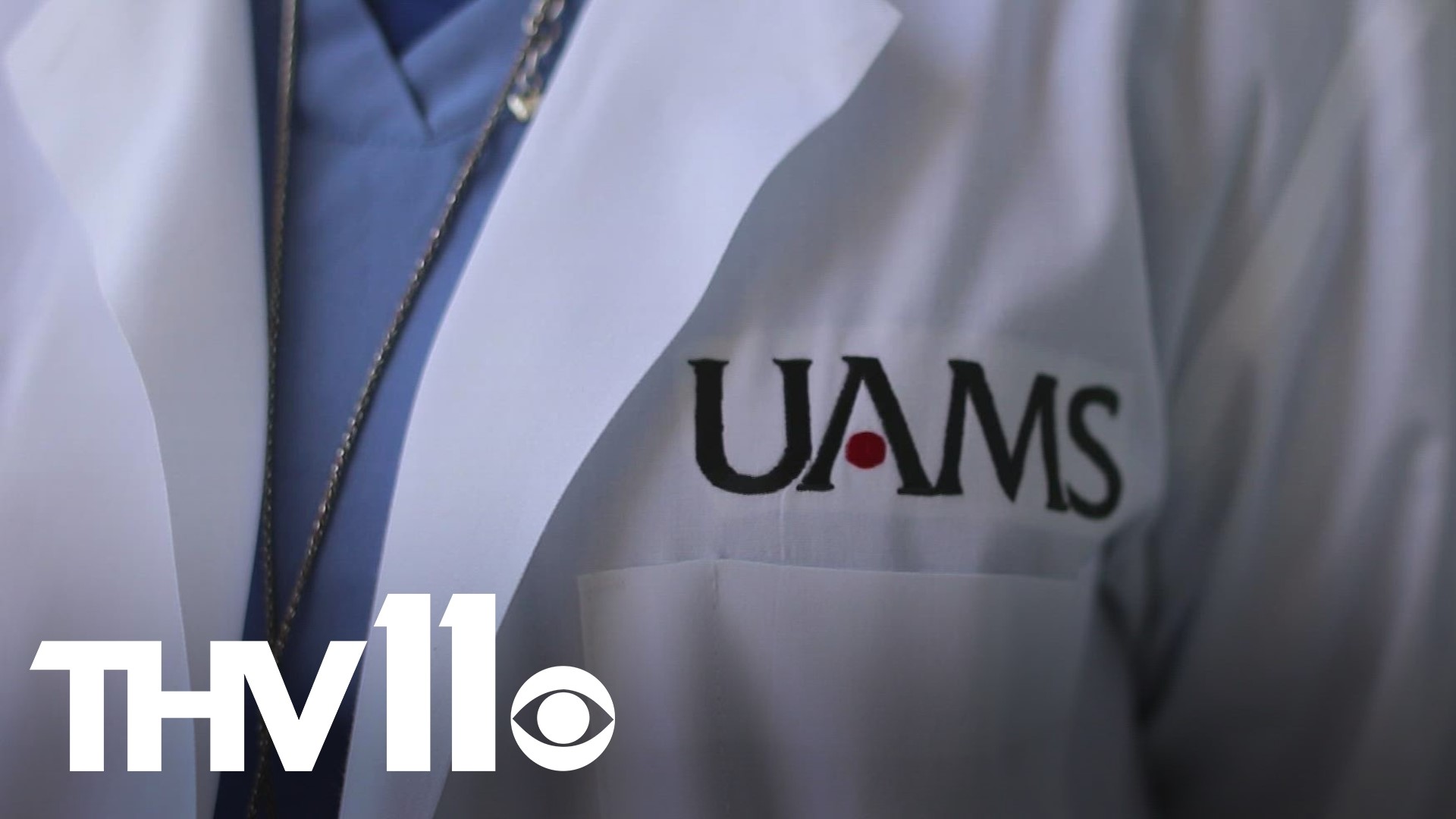LITTLE ROCK, Ark. — A new program at UAMS is not only saving students money but focusing on some of the most under-served parts of our state.
The program took its first class of nine students on the Northwest Arkansas campus in July 2021.
It all started with a $4.75 million grant, which will allow students to become a physician faster while improving healthcare in our rural communities, according to Dr. Susan Smyth, UAMS Executive Vice Chancellor and the Dean of the College of Medicine.
"If we don't do this, then the ownership is on us," she said.
As the state's academic medical center, Smyth said this is UAMS' responsibility.
"When we think about physician shortage, we're really thinking about across the state of Arkansas, how we're positioned, and that the issues really are in our rural communities," she said.
It's an issue, that Smyth said, has grown over the years as the population grows, but the number of physicians being trained isn't matching that same growth.
"We're having physicians retire, and we just haven't kept up. We're now really going to start facing issues," she said.
With a goal to keep this problem from continuing, UAMS created a program where medical students who want to be primary care doctors and stay in Arkansas, can complete their degree in three years rather than four.
According to Smyth, specifically, prepping these students in an under-served part of the state.
"So that we're really training even more residents in rural communities to hopefully keep some of them as physicians in our rural communities," she said.
This fast-track degree also helps the student's wallets according to Smyth.
"The more debt our students and our residents accumulate, the less likely they are to do either primary care or practice in rural communities," she said.
Smyth said it also helps the healthcare of our state as a whole.
"We will be able to train highly qualified students in a faster manner so that we can get them into our communities slightly quicker," she said.
Dr. Smyth said there's a lot of research that shows the earlier in a medical student's training that they're exposed to a specific environment, the more likely they are to practice there.
This is why they believe training students in rural communities may keep more of them in those areas, she said.

